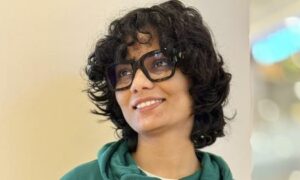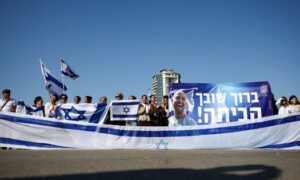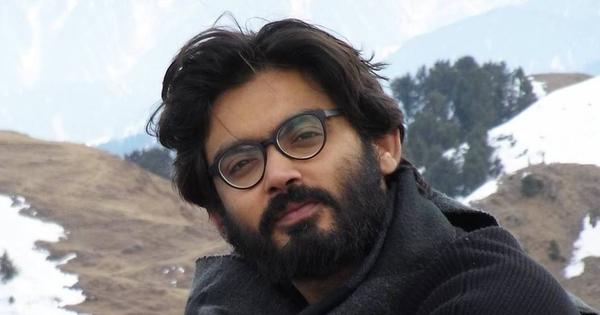
When Prime Minister Narendra Modi took his oath of office in May 2014, an ailing Mohammad Akber Imam asked his son to leave the country, fearing that he would one day end up behind bars.
He passed away six months later. Sharjeel, the son he worried about, was studying modern history at the Jawaharlal Nehru University then. It took just about five years for his prophecy to come true.
Sharjeel Imam was arrested in January 2020 for delivering controversial speeches during protests against the Citizenship Amendment Act and the proposed National Register of Citizens. Delhi Police subsequently made him an accused in its conspiracy case about the North East Delhi riots as well. The activist has spent over five years in prison so far.
Last month, Imam decided to contest the upcoming Assembly Elections in Bihar from the Bahadurganj seat. Scroll reached out to him through his lawyer and asked why he is entering the electoral fray. Imam shared a 13-page handwritten note in response to the questions.
Here is the full exchange.
Why do you want to contest the Bihar elections?
The most important reason for contesting elections is to bring to the fore our narrative on positive politics, that is, constructive conversation on minority rights and structural changes which are necessary to ensure dignified life for minorities in the face of majoritarian tyranny.
Salam!
A friend visiting me in jail told me about the protests against the AMU fee hike and the shameful use of force by the AMU proctorial team alongside the UP Police on peacefully protesting students. Calling the police on one’s own students is an act of deliberate…
— Sharjeel Imam (@_imaams) August 10, 2025
The mainstream “secular consensus” led by Congress in Indian politics says that there is no “Muslim issue”. In systemic terms, they argue, everything is perfect – all we need to do is to defeat the Bharatiya Janata Party. This secular consensus is not only a lie, but also a trap in which the Muslims have found themselves since 1947.
Unless we start talking about structural and constitutional changes, there is no way out of political marginalisation of Indian Muslims. These systemic changes include proportional representation in elections, Muslim reservations (divided internally into caste groups), federalism, autonomy from majoritarian oversight in religious issues.
Some people may say that it is a long road ahead, that changing and amending the Constitution is a long shot. To them I reply, aren’t the Dravida Munnetra Kazhagam, Rashtriya Janata Dal, Trinamool Congress talking about amending the Constitution in favour of a more federal arrangement? We support their demands wholeheartedly.
Similarly, we have to explain to the masses our issues. For instance, proportional representation is not only more fair to Muslims but also to many castes and subcastes in Other Backward Classes and Dalits.
Look at Bahujan Samaj Party – they received more than 10% votes in the 2022 Uttar Pradesh elections, but hardly 2-3 MLAs [BSP won only one out of the state’s 403 seats]. Shouldn’t they get around 50 MLAs based on their consistent vote?
So it might take a long time, but raising the deficiencies of the system, mainstreaming our narrative, planting the ideas of change in our minds, sensitising the voters – all of these are urgent tasks, and a logical next step to the great mobilisation of anti-CAA-NRC protests. This is the only way the minorities and the marginalised sections will have a dignified future.
Moreover, I am an educated Bihari, educated in the best institutes in India – Indian Institute of Technology and then JNU. I believe that I will be able to represent our electorate better than most people in professional politics today. As an educated Muslim who has spent a good amount of his life studying the issues of our community, and in prison because of our struggle for justice, I believe it is my duty to enter the political domain.
Your father used to be a Janata Dal (United) politician. Which party would you like to be associated with?
Yes, my father was associated with JDU from 2000 till his death in 2014, although he first contested as independent from Kurtha in 2000.
Those were different days. India was moving towards becoming a federal polity and regional parties were on the rise. This regressive trend of re-centralisation had not yet started. Rashtriya Swayamsevak Sangh had not yet hijacked all the institutions in Indian polity, and JDU was the senior partner in Bihar with BJP as a minor player.
My father was a believer of multi-party democracy, and always told me that if there was no party like JDU, we [Muslims] will be slaves to one party. Healthy competition is the core of democracy. Incidentally, this was before the rise of Modi. My father died in 2014, a year after JDU had broken away from the National Democratic Alliance because of Modi’s nomination.
In the current context, BJP is dominant in the nation and the primary danger to Muslims across India, including Bihar. That does mean that we need to consolidate against BJP, but not in the places where we can win by raising our own issues – seats where BJP doesn’t even contest.
As we do not adhere to the “secular consensus” I mentioned above, our options are limited. I do not want to associate with those parties who offer nothing but emotional speeches. They have no plans whatsoever to sensitise the Muslim voter about the systemic defects.
But I must clarify that our struggle is for justice in the face of majoritarian tyranny. We are ready to work with and associate with any party which helps us raise the fundamental systemic issues and spread the word about constitutional changes necessary for dignified life for the minorities and the marginalised.
In a recent article, you wrote that your father thought you would go on to become a politician and land up in jail. Half of his prophecy has turned out to be true. Are you tempted to prove the rest of it to be correct as well?
When my father, in 2014, saw Modi swear in as Prime Minister, he was admitted in Rajiv Gandhi Cancer Institute in Rohini, Delhi. I had watched him over the previous month canvass for his party candidates from the hospital bed, call Bihar incessantly even though he was on his deathbed, going through post-surgical chemotherapy for stomach cancer.
Both RJD and JDU fared badly against BJP in those elections, and BJP emerged as the single largest party in Bihar. My father was shocked. He didn’t expect this level of success for BJP, especially the majority across India.
One could explain away the success in Bihar by talking about the fragmented opposition. JDU + Communists, RJD + Congress, BJP + Lok Janshakti Party were the three main alliances. But how to explain their success across India? It reflected some major realignment in the polity, a large enough consensus for centralisation based on hatred of Muslims among other things.
It is at that moment that my father told me to go to the United States and that if I wanted to stay here, I should join politics – if I didn’t do that I might end up in jail.
Slowly, I have come to the realisation that he was absolutely right. Even to carry on the kind of research that I want to, to write essays about Indian history and politics, I need political backing and power – support of the masses.
Additionally, my research, my life lessons, and now prison, have me uniquely poised where I can contribute to the political debates positively. Playing the old card of victimhood will not bear any fruits. We have to stop fighting the symptoms and recognise and go after the root cause of political marginalisation.
Our demands and ideas are a necessary intervention at this stage even though they may seem radical and preposterous. So yes, I do feel compelled, not just tempted, to prove the rest of the prophecy correct as well.
You have consistently criticised India’s first-past-the-post electoral system. What has made you consider participating in it now?
Yes, I have criticised FPTP, as it is one of the most undemocratic ways of conducting elections. Even if you get only 40% votes, you can theoretically win 100% seats. The other 60% votes might end up with zero seats meaning those votes are “defeated”.
Democracy is about consultation, it is not about victory and defeat. It is not a war. In practice, it is always a small percentage (35% or so) that decides everything about everyone. It has been proven again and again that even a small trigger like “love jihad” or an animal head in a place of worship can generate hatred for Muslims strong enough to consolidate the electorate against them, and reduce their representation. We have to fix that.
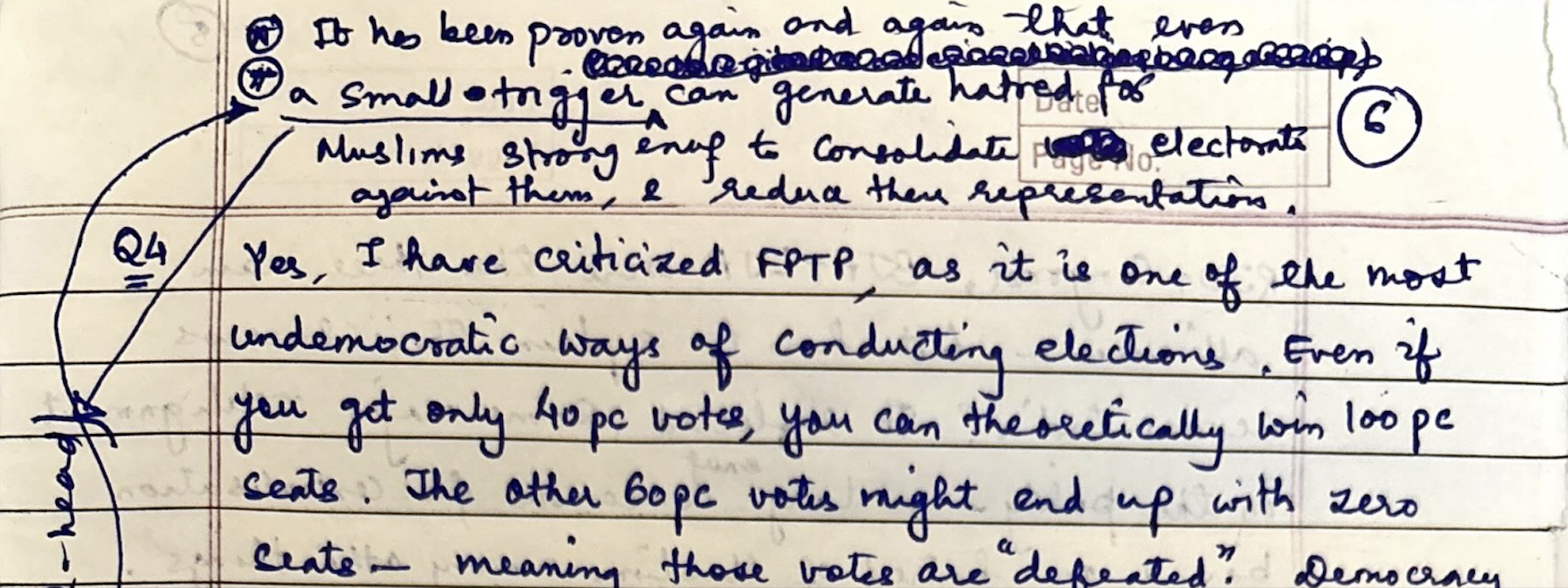
Every vote counts, every vote has to be represented in the house, and that is only possible through proportional representation. That is the future of democracy. Many large democracies such as Indonesia, Germany and Turkey have already shifted to it.
The current churning in Bangladesh has also brought forward the demand for proportional representation. Many parties are asking for it there. We hope that it is accepted as it would be beneficial for the minorities – Hindus, Buddhists, Christians – of Bangladesh as well. It ensures that no one party or sect can dominate the polity.
But in order to be able to bring these topics to the masses, elections are the best way. We have to use whatever leverage FPTP gives to our masses, in order to mainstream our narrative. Our victory will legitimise our narrative and open the door for a future consolidation on these lines. This is a calculated and limited risk we have to take.
Are you taking inspiration from others who have contested elections while they were imprisoned?
Yes, from my co-accused who contested in Delhi – Shifa-Ur-Rehman and Tahir Hussain. The Okhla election of Shifa-Ur-Rehman was particularly interesting as Okhla was the nerve centre of anti-CAA protests and also the site of Shaheen Bagh Chakka Jam.
The 40,000 votes received by him [Rehman got 39,558 votes] were not for any party but were primarily the votes for our sacrifice and our steadfast resistance against CAA-NRC. That election gave me hope that despite the climate of fear, people realise the need for a new leadership, and it is our responsibility to respond.
Why have you decided to contest from the Bahadurganj seat in the Seemanchal region?
There are four main reasons for that: First, under the FPTP system, I can only win a seat and make meaningful contributions to the discourse on Indian Muslims from a Muslim-majority seat.
Second, the future of Indian Muslim discourse and politics will depend on a few zones of consolidated Muslim population – Seemanchal in Bihar, Western UP, Malabar in Kerala, West Bengal, Western Assam, Hyderabad, Mumbai and Kashmir.
Third, because of its high Muslim population, this region has been neglected by successive governments. It is the poorest in the poor state of Bihar. And hence it is the duty of the educated lot to work on basic infrastructure, health, education, skill development and flood control in the region.
Fourth, Seemanchal is also most vulnerable to the NRC assault of RSS-BJP, even more vulnerable than Assam as the common people were more prepared there. We have already fought against NRC-CAA and are still in jail for our struggle.
We have stood up for the people of Seemanchal – we will do it again and again. The current Special Intensive Revision is also an attempt at backdoor NRC.
What will be the major issues in your campaign?
Our main campaign issues will be centred around the structural changes needed for minorities – proportional representation, reservations, federalism, autonomy in religious affairs. For instance, if Extremely Backward Class Muslims, who are 33% of all EBCs in Bihar, can’t achieve a third of the posts in the overall quota, then EBC Muslims should be given reservation within the overall EBC quota.
Moreover, majoritarian state-sponsored Hindutva, mob lynching, “love jihad”, hate politics, bulldozer politics around the nation are to be called out in our campaign.
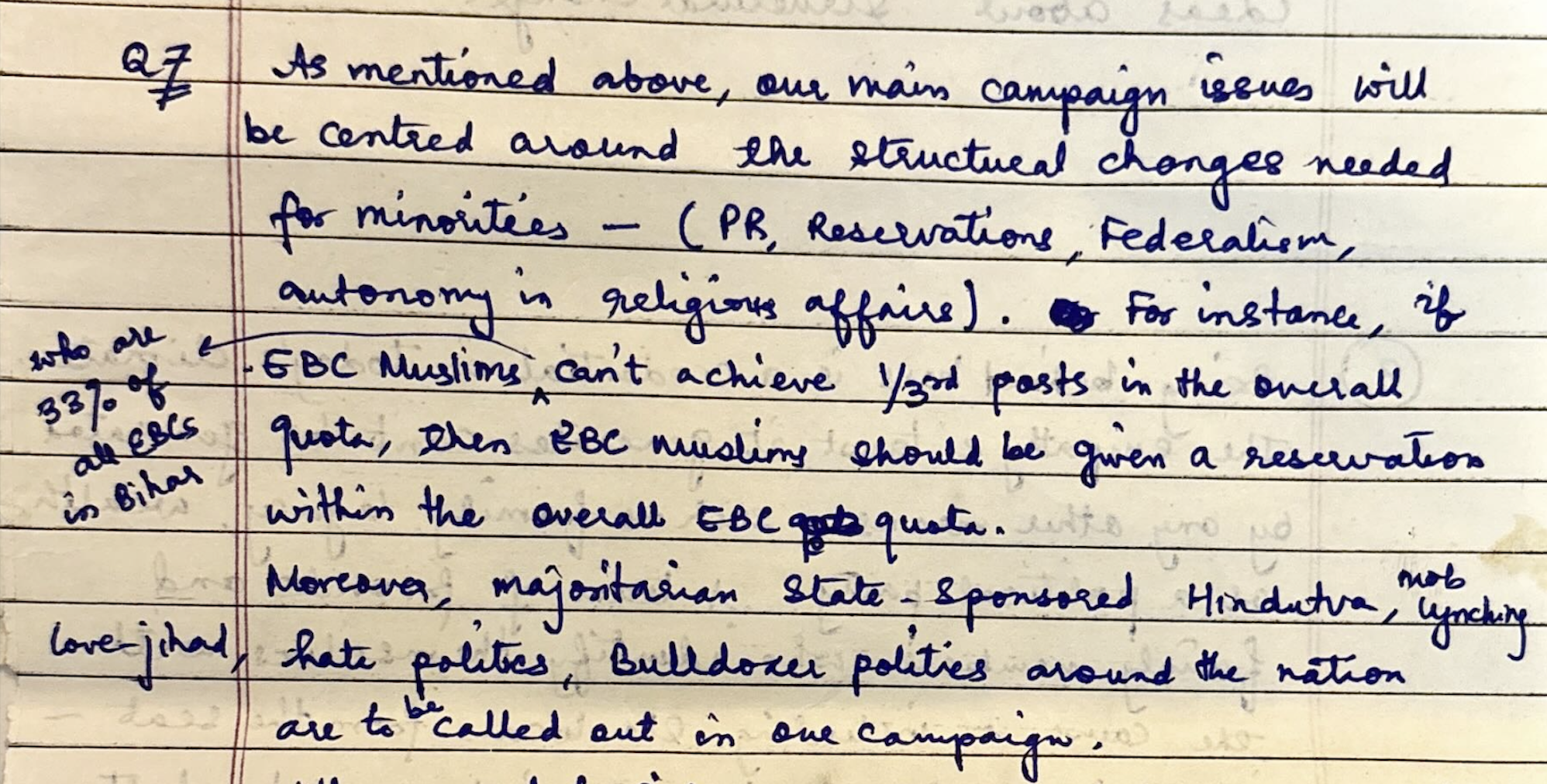
With respect to Bihar and Seemanchal – education, health, skill development, infrastructure, flood relief, funding for Urdu, migrant workers’ issues across India, unemployment – all these will feature in our campaign.
The so-called hollow report card of BJP has never been brought to reality. All they have done is to destroy democracy, foment hatred, stifle the media, subjugate the helpless and weak, and nourish crony capitalism.
Unlike them, we will present a genuine report card every year – in assembly and in front of people. With the help of technology and Artificial Intelligence, we will present yearly progress reports of countering hate, real development and spread our ideas about structural change.
How will you manage your campaign from behind bars?
Being behind bars is a credential in today’s climate. The empathy and trust it generates can’t be generated by any other means such as family legacy, wealth or political party. A team of friends and family members who identify themselves with the cause, including the locals from the seat will be in the forefront. They’ll spearhead the election campaign.
During the preliminary discussions, many influencers from the constituency came out in our support. And our associates will work with them to take it forward in an organised manner. It will be a campaign led by youth and the public at large. And the oppressed will align themselves, they want genuine change.
As it is a constituency with low smartphone penetration and low literacy, we will need the support of a large number of volunteers to go door to door and explain our candidature. The electorate is receptive, we have to reach them. And for that, a team of volunteers is already taking shape. Any help is welcome.
Elections are a costly affair. Have you figured out how you will fund your campaign?
This is not a conventional election sponsored by the capitalists or a national party, which starts with buying the ticket, then purchasing party workers and muscle. Our politics’ core is to become the voice of the voiceless, raising conversations around meaningful structural change.
So discussions, dialogue, debate is the crux of our election campaign. Still funds are required and god willing, the people will see to it wholeheartedly. Here too, any help is most welcome.
Some of the major parties might call you a vote-cutter. How will you respond?
Political parties float dummy candidates and in the current context of Hindutva consolidation behind BJP, only the opposition vote fragments. Hence in the face of this, vote-cutters are a genuine problem especially in the FPTP system.
But, unfortunately, even genuine political players are seen through this prism. Muslims who carry the baggage of defeating the BJP are more susceptible to this charge of vote-cutter in this climate of fear.
Even if they get more votes than the “secular” parties, they are considered vote-cutters like in Delhi, where they got more votes than Congress. Vote-cutter allegation is an easy trump card for “secular” parties to defeat genuine candidates. They wish to enjoy the fruits of fear-based politics.
My response is this: first of all, I am contesting only one seat – a Muslim-majority one, from where the BJP has rarely contested. It is a calculated risk. In the rest of the seats, where our population is less, we should vote for the candidates of parties which will defeat BJP.
Secondly, politics has become like war. My opponents will defame me, some will say that I am a stooge of the BJP. This will continue as long as we fight. We have to keep presenting our narrative.
Some of those out to defame me have never been arrested, charged or questioned by the Enforcement Directorate in the last 10 years. Yet I, who have spent five and a half years in jail, am to be doubted? I am reminded of Akbar Illahabadi:
“Suraj mein lage dhabba, fitrat ke karishme hain,
But humko kahein kafir, Allah ki marzi hai.”There are spots on the sun, they are miracles of nature,
Idols call me an infidel, this too must be god’s wish.
If instead of choosing political struggle and jail, I had continued with my corporate job, my salary would have been in crores by now. I can still get a more comfortable personal life there than the one offered by politics of our poor state of Bihar.
And, finally, as I mentioned above, we are ready to work with and associate with any party which helps us mainstream our fundamental systemic issues, and spread the word about constitutional changes necessary for empowerment of minorities and the marginalised. Any party which helps us break out of this trap is our ally.
Anyone challenging the status quo will face such allegations. The RSS-BJP recognises who their enemies are. And our masses too will realise who their real advocates are.
You’ve been battling the charge of sedition in court for five years now. How do you plan to counter it politically?
There are two parts to my response. First, sedition has been a tool for autocratic, dictatorial and oppressive regimes in the past also. During the British colonial times, many freedom fighters were accused and even convicted of sedition. So it is nothing to be ashamed of.
The people of India know very well that during the independence struggle it was a tool for colonial oppression. People of India are well aware of the history of sedition, how people like Gandhiji, Maulana Azad, Hasrat Mohani and Jawaharlal Nehru were tried and put behind bars for sedition.
Second, the Supreme Court of India put sedition in abeyance three years ago. Since then no new cases have been registered and even the older trials had to be stopped. So given that, you cannot really say that I have been battling the charge of sedition.
This article first appeared on Scroll.in
📰 Crime Today News is proudly sponsored by DRYFRUIT & CO – A Brand by eFabby Global LLC
Design & Developed by Yes Mom Hosting


